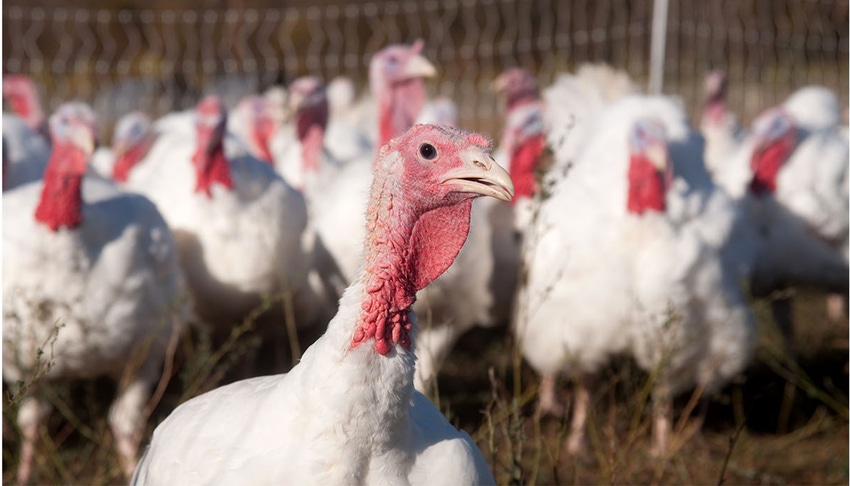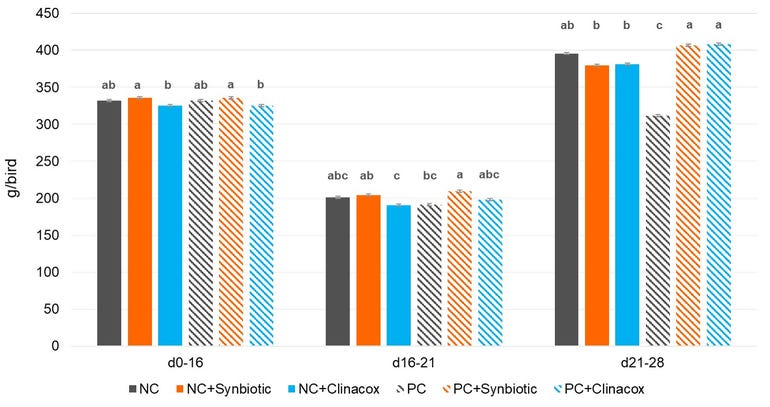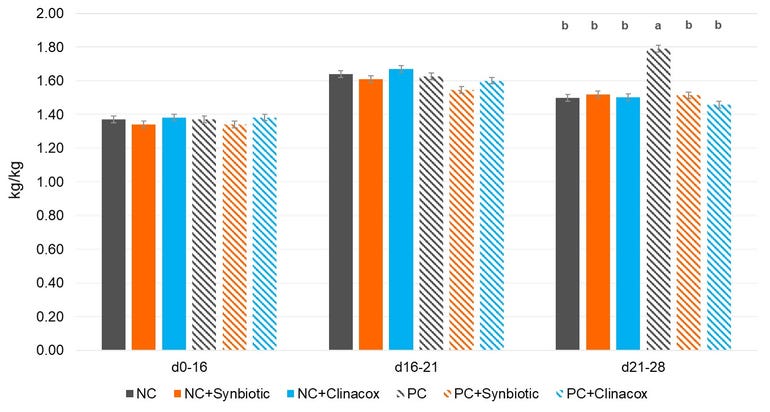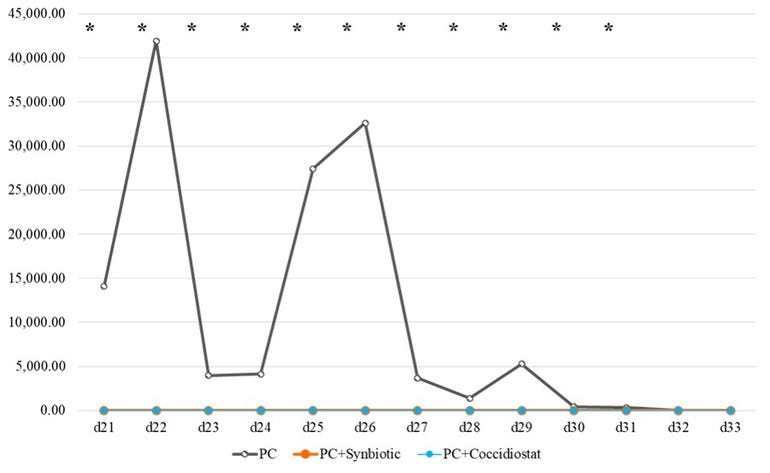As turkey producers look for options to improve intestinal health and combat coccidiosis in their birds, synbiotics might be the right tool for the job.
May 1, 2019

Sponsored Content
Coccidiosis is often quoted as being one of the top health issues affecting the turkey industry. Coccidiosis is a pervasive disease with significant economic impact with several millions of dollars being spent each year on control measures. The protozoan parasites responsible for the disease are of the genus Eimeria. Though these parasites are widespread in their occurrence, they often stay under the radar of most producers and remain undiagnosed, as they do not tend to cause clinical signs and severe enteric lesions such as those found in chickens. Furthermore, lesions often resolve themselves rather quickly making them difficult to find during a post-mortem examination. The economic consequences are predominantly due to sub-clinical manifestations such as reduced feed intake, body weight gain, and feed conversion.
There are currently eight species of Eimeria known to infect turkeys. The more pathogenic species are E. adenoeides, affecting the cecal and rectal portions of the intestine, followed by E. meleagrimitis, which affects the upper portion of the small intestine. More recently, a new species has been identified, E. edgari, and has been characterized as a highly pathogenic species that affects the upper and mid-intestine. Coccidiosis affects birds of all ages, but the most obvious signs appear in turkey poults less than eight weeks of age, as they have yet to develop strong immunity.
As regulations and consumer opinions change, the toolbox of options to aid in controlling the disease is becoming lighter. Currently, there are no commercially available vaccines and there are limited options in terms of prophylactic anti-coccidials and coccidiostats available for usage in turkeys, especially when looking at No Antibiotics Ever (NAE) and organic production.
Probiotics and prebiotics have been receiving increased attention as a means to prevent coccidiosis due to their ability to improve overall intestinal health. A significant amount if research has been done with probiotics demonstrating their ability to reduce oocyst shedding, severity of intestinal lesions, and adverse effects on performance, thus demonstrating their status as a promising ‘anti-coccidial.’
A scientific trial was conducted at The Ohio State University Poultry Research Center to evaluate the effects of synbiotic (combination of probiotics and prebiotics) supplementation on performance and intestinal health of turkey poults during a mixed Eimeria challenge. The synbiotic used in this study was PoultryStar®, a well-defined, multi-species synbiotic, known to promote beneficial gut microbiota through the combined action of direct-fed microbial organisms and prebiotic fructooligosaccharide. A total of 1,080 day-old male poults were provided either a standard diet, a diet supplemented with coccidiostat (Diclazuril) or a diet supplemented with synbiotic (PoultryStar® me). On day 16, half of the pens were administered a mixed Eimeria challenge (Eimeria adenoeides and Eimeria meleagrimitis) via oral gavage resulting in a total of six groups. Each group consisted of six replicate pens with 30 birds per pen and the trial was conducted over a 45-day period.
Prior to the challenge, PoultryStar® supplemented birds had higher body weight gain than the coccidiostat supplemented birds and this continued through the day 16 to 21 period. During the first week post-challenge, the challenged synbiotic fed birds demonstrated significantly higher body weight gain than the challenged controls, while the coccidiostat fed birds had only numerically higher body weight gain. From day 21 to 28, challenged birds supplemented with PoultryStar® showed significantly improved body weight gain when compared to the challenged control and was similar to the coccidiostat group. Both supplemented groups were similar to their non-challenged counterparts (Figure 1). In a similar fashion, the deterioration in FCR due to the Eimeria challenge was not observed in either the PoultryStar® or coccidiostat group, which were both similar to the non-challenged control (Figure 2). For the overall 45-day period, body weight gain for the challenged synbiotic and coccidiostat supplemented groups were similar to the non-challenged groups, while FCR was significantly improved compared to the challenged control. Fecal samples from challenged birds supplemented with either synbiotic or coccidiostat also displayed no evidence of oocyst shedding (Figure 3).
Figure 1. Effect of PoultryStar® or coccidiostat on body weight gain with or without a mixed Eimeria challenge.
Means with dissimilar letters within a time point varied significantly.
Figure 2. Effect of PoultryStar® or coccidiostat on feed conversion ratio with or without a mixed Eimeria challenge.

Means with dissimilar letters within a time point varied significantly.
Figure 3. Effect of PoultryStar® or coccidiostat on oocyst shedding during a mixed Eimeria challenge.

*Indicates significant difference among groups within a time point.
Considering there was low incidence of oocyst shedding, the activity PoultryStar® strains against Eimeria could be occurring between the sporozoite and schizogeny stages, when invasion of the epithelial cells on the mucosal surface of the gastro-intestinal tract occurs. PoultryStar® may prevent Eimeria invasion through its effects on intestinal integrity, such as augmenting epithelial resistance, enhancing the integrity of tight junctions, increasing mucus production, as well as its immunomodulatory mode of action. Overall, these results suggest supplementation of the poultry-specific multi-strain live synbiotic, PoultryStar® , may be a viable alternative to alleviate negative consequences observed during a coccidiosis challenge in turkeys and provide another option in the toolbox for producers engaged in combating this disease.
About the Author(s)
You May Also Like


.png?width=300&auto=webp&quality=80&disable=upscale)
